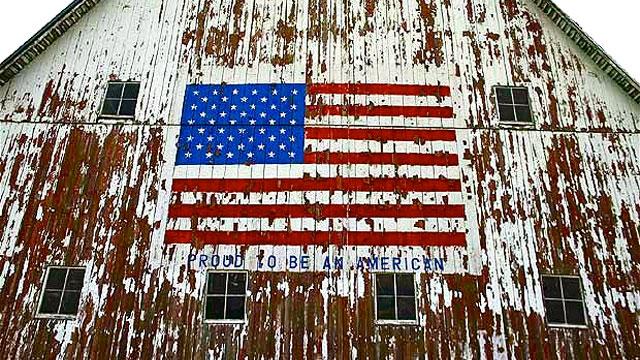
Photo: David Howells.
Revolutions typically start with a theory and talk and transition into practice and political action. They almost always end in disaster for the societies they disrupt and the economies they destroy. That's the story of the French Revolution and Russia's October Revolution, but not the American Revolution, which had a happier ending – until now.
What we are currently witnessing looks worryingly like the end of the American Dream for most of us and, in a real sense, the last act in the America Revolution. What started back in 1776 remained a work in progress until a) the Civil War freed the slaves; and b) women and African-Americans finally won the right to vote after World Wars I and II, respectively. But, within a decade of extending the franchise, preparations to undermine its effects – and prevent the wider distribution of wealth it implied – were in full swing.
It started with two University of Rochester business-school professors, Michael Jensen and William Meckling, and a theory – the so-called "Theory of the Firm" published in the obscure, academic Journal of Financial Economics in 1976. It debunked the old corporate model as unsuited to the new realities of the emerging global economy; and it offered a new model that called for a wholesale restructuring of the corporate commanding heights of the economy.
The declining competitiveness of U.S. business and industry was proof the old model was no longer working. It found the separation of ownership and management to be at the heart of the problem and the underlying cause of poor strategic planning and operations. CEOs were too quick to make concessions to unions, not cost-conscious enough, and too reluctant to streamline operations, adopt new technologies or adapt to globalization.
When the managers and owners are one and the same, they can move fast, do whatever they please, and aren't accountable to anyone. All you need is "leverage" (lots of privately borrowed money). Out of this theory sprouted the seedlings that grew into today's corporate raiders – the private equity firms like Bain Capital and investment-bank behemoths like JP Morgan and Goldman Sachs.
And now that the bubble has burst and the middle-class has been made to pay for billion dollars worth of bailouts to banks and major corporations, now that hundreds of factories have been closed and thousands of jobs lots, now that foreclosures have disrupted the lives of families from coast-to-coast – now the old white titans of industry have the audacity – nay, the indecency – to blame a black man, Barack Obama, for everything.
Everything.
To say it's irresponsible of the financial wheeler-dealers who caused the problem is a gross understatement. These are the very individuals who got rich by jumping on the high-speed train that took the American economy from a model of profitability based on quality products and competitive prices to one based on leveraged transactions – mega-million dollar deals made behind closed doors with no accountability to any public authority.
This transformation ultimately led us to the derivative economy that crashed within a period of less than a quarter of a century. We have Wall Street, along with the Harvard Business School and guys like Willard Mitt Romney to thank for the reinventing of the U.S. economy, financialization of business, and the so-called "Third Industrial Revolution". And, by the way, Barack Obama had nothing to do with it.
Nothing.
Romney's private equity fortune amassed during his tenure as Bain Capital's boss is only one example of how business in the U.S. was transformed from organization-based (corporations that lived and died by the quality of the products and services they provided) to transaction-based ("consulting firms" engaged in private deal-making to avoid regulation and transparency, hostile takeovers, leveraged buy-outs, restructuring schemes, lay-offs, and ruthless pursuit of quick profits). It's a transformation that made a few people very, very rich, and put most of us very, very much at risk – our homes, jobs, savings, and pensions. If Obama is to blame for anything it's for talking about hope in 2008 at a time when millions of Americans – poor and middle class alike – were about to lost it.
In the brave new economy the only thing that defines success or failure is the bottom lines for the investors and owners (one and the same) of ephemeral companies constantly moving across an ever-changing commercial landscape and providing no measurable benefit to consumers, workers, or the society they exploit. If anything good and lasting comes out of this election let's hope it's the truth about who hijacked the U.S. economy and how they did it. Never mind why (greed is nothing new). The key to finding a solution is understanding the problem.
3 WAYS TO SHOW YOUR SUPPORT
- Log in to post comments











